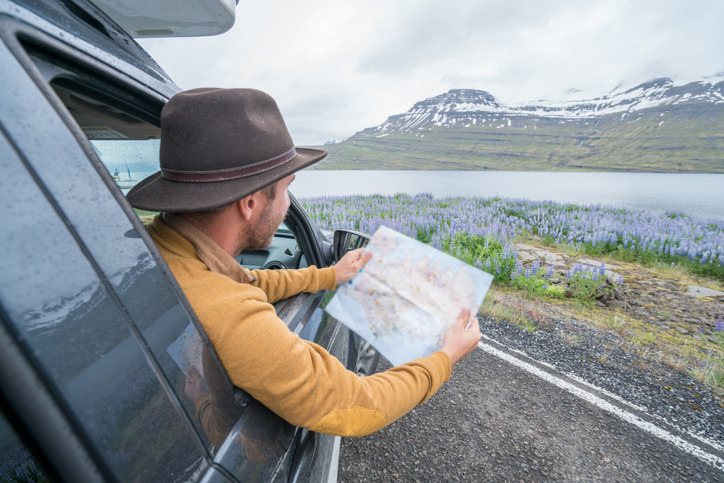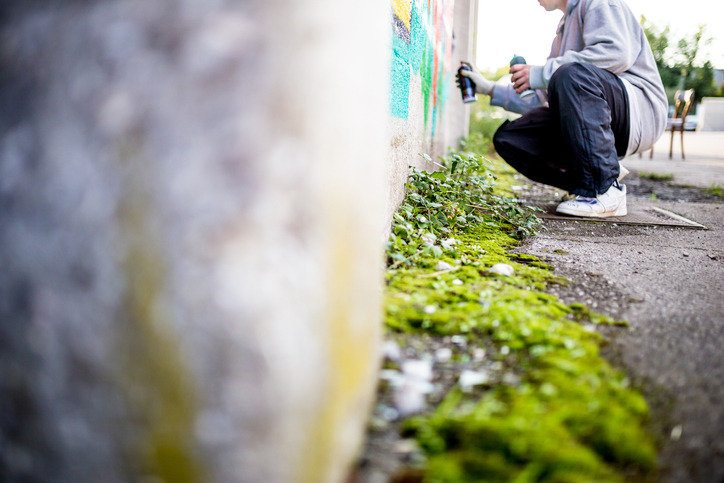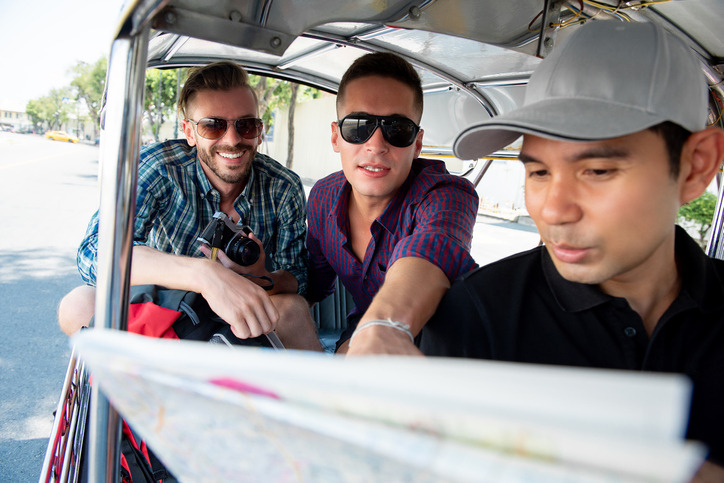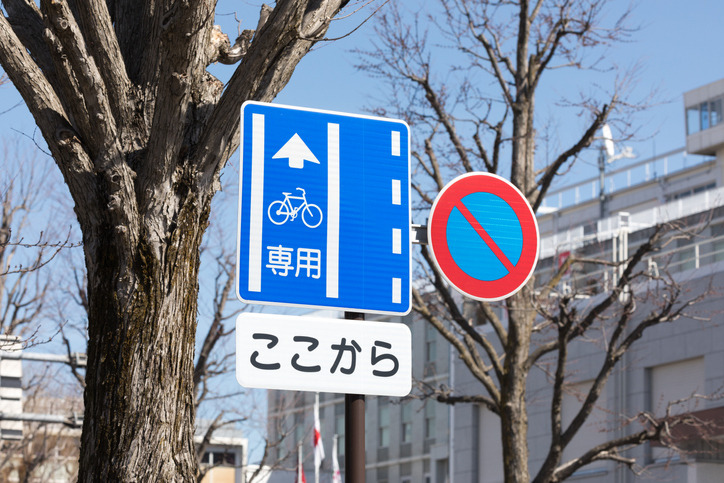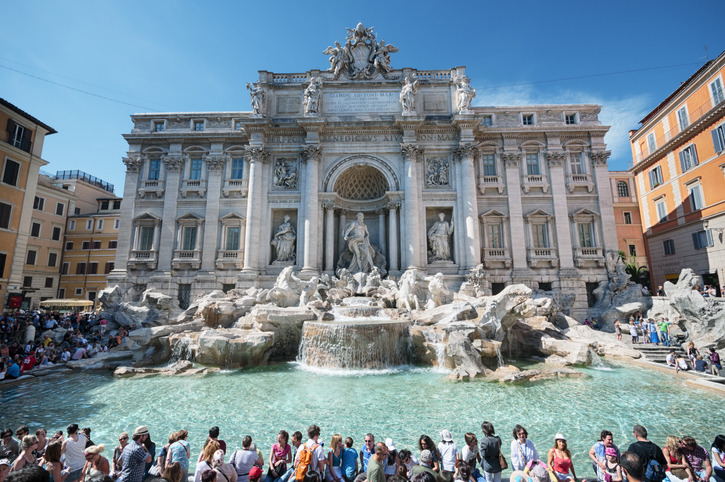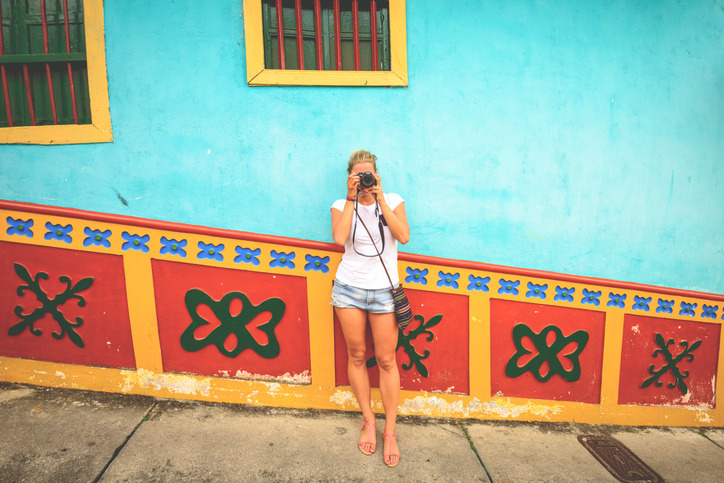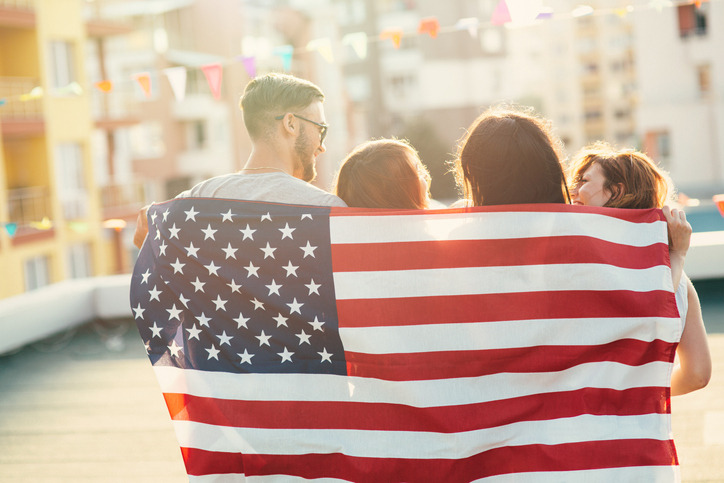Why Locals Get Massively Annoyed With U.S. Tourists
The first time you travel abroad, you may be surprised to learn that Americans have a less than stellar reputation overseas. Americans are already guilty of some pretty dumb behavior at stateside tourist attractions. For example, a man was arrested in 2018 for walking off the trail at Yellowstone and standing right over the Old Faithful geyser. While international tourists visiting America are certainly guilty of bad behavior as well, our mistakes can look even more foolish abroad, where cultural prejudices or misunderstandings can annoy and even offend locals and make us look bad as a country.
While much of the "ugly American" stereotype isn't true for most earnest, curious international travelers looking to expand their horizons and learn about a different culture, some foreigners' attitudes about Americans are grounded in genuinely ridiculous situations and experiences. If you don't want to be that person and instead want to help redeem the international reputation of your country, here are 20 things to avoid doing that make Americans come off as entitled, arrogant or ignorant to locals.
Stealing historic items as souvenirs
It shouldn't be news to Americans that souvenirs are sold in the gift shop. Pocketing random items from a site you visit, or worse, stealing historical artifacts, is not the way to commemorate your holiday. In 2014, two American tourists were busted at the airport in Rome with a more than 60-pound artifact from the ruins of Pompeii in their luggage. In 2018, an American woman was stopped at the Vienna airport with an unexploded World War II shell in her bag. An airport official had to call the bomb squad. Not only were their mementos confiscated, but they also all faced criminal charges.
Touching ancient artifacts
Even if they're not trying to smuggle out an ancient artefact, Americans also seem to have a hard time keeping their hands off of priceless items and national treasures. Chinese officials were incensed when an American man broke off the thumb of a terracotta soldier statue, valued at $4.5 million, that was part of a visiting exhibit at the Franklin Institute in Philadelphia and took it home with him. An American surgeon visiting Florence's Museo dell'Opera del Duomo snapped a finger off a 600-year-old statue of the Virgin Mary when he reached out to compare it to his own digits.
Dressing disrespectfully
Locals and fellow tourists alike are mortified when Americans dress and act disrespectfully at religious sites. Wearing flip flops and a fanny pack to Vatican City treats this revered place like a theme park. Modesty is key and sometimes required when visiting religious buildings such as churches, mosques or Buddhist temples. Even if it's the peak of summer, wear tops that cover your shoulders and long pants or skirts that cover your legs. Remember many of these places are still functional, so make sure you're not loudly talking during worship or services.
Not keeping your clothes on
Speaking of clothes, Americans abroad have a bad reputation for not only dressing disrespectfully but also straight up stripping in totally inappropriate places. In 2017, two American men were arrested, fined and blacklisted from Thailand after taking a photo of themselves mooning Bangkok's Wat Arun temple and posting the photo online. Four American tourists were detained in 2014 for getting naked at Machu Picchu. And two American sisters were arrested and deported after posing for photos in the nude at Cambodia's Angkor Wat temple. Disrobing at cultural and religious sites is disrespectful as well as illegal in many cases.
Making light of tragic history
International locals are used to Americans knowing only a few highlights or stereotypes about their country. And while it's certainly annoying to an Irish person to say "top of the morning," it's downright offensive to order an Irish car bomb cocktail in Northern Ireland. The drink, a mix of Baileys and Guinness, makes light of terrorism attacks made using car bombs. Similarly, it's seen as in poor taste to take smiling selfies while touring a concentration camp like Auschwitz. In Germany, Nazi signs, slogans and symbols are actually illegal, and Germans take issue with people jokingly using them. In 2017, an American tourist out on the town in Dresden was punched and later arrested for doing the Nazi salute on the street.
Having no concept of geography
Many locals online have shared stories about dumb Americans not having a concept of world or local history or geography. For example, some Americans don't know that England, Scotland and Ireland are all separate countries or that Portuguese, not Spanish, is the language of Brazil. This definitely hurts a local's pride. Sometimes it's vital to learn a little local geography before your trip for your own sake. In 2016, an American named Noel Santillan typed "Laugarvegur" instead of "Laugavegur" into his rental car's GPS to get to his hotel in Reykjavik. What should've been a 45-minute journey turned into a six-hour trek to a remote fishing village that has a street called Laugarvegur. His story worked out, however, as he became a bit of a celebrity in the small town he unintentionally visited and got to experience the local culture.
Recreating scenes from a movie
Locals judge Americans hard for being the millionth person to dress up as Borat or quote lines from the movie in Kazakhstan, or say they're doing a "Eat, Pray, Love" in Bali or India. And while it's definitely cool to visit sites from a movie, the tourist draw can also damage that location. For example, the Thai island of Ko Phi Phi Leh was made famous as the gorgeous backdrop for the 2000 Leonardo DiCaprio movie "The Beach." But the beach and coral reefs became so damaged by the constant stream of people that authorities closed it to tourists so it could recover. Another location affected by movie buffs is Glen Etive in the Scottish Highlands. The place was a backdrop for a pivotal scene in the James Bond movie "Skyfall." The ground has been worn and damaged by countless people pulling off the road to recreate the shot from the film.
Leaving graffiti
Just because a city has a vibrant street art scene doesn't mean you get to tag your initials or an infantile message wherever you want. Americans are perceived as entitled and discourteous for their need to leave their mark on things by vandalizing everything from street signs to ancient monuments. An American couple was arrested in Thailand in 2017 for tagging surfaces in Bangkok "just for kicks," and an American teenager was arrested in Japan for spraying his name outside a restaurant. Perhaps the most awful incident took place in 2015 when two women from California were caught carving their initials into the walls of the 2,000-year-old Colosseum in Rome and taking a selfie.
Eating American food
American restaurants have expanded around the world, meaning you can get KFC in Japan, Starbucks in Johannesburg and Domino's in Brazil. And while it might be tempting to go with what's comfortable and easy while traveling internationally, it makes locals cringe. Many cultures pride themselves and define themselves with their cuisine, and you opting for McDonald's instead of exploring what they have to offer makes people wonder why you bothered leaving home.
Expecting everyone to speak English
Unless you're going to a country with English as an official language, it's silly to expect locals to speak or understand English. Do tourists in America shout at baristas in Russian or Swahili hoping they'll understand? While you don't need to be fluent in another language to travel, learning a few basic foreign phrases such as "hello," "excuse me," "please," "thank you" and "Do you speak English?" can help tremendously. And even if you end up dealing with someone who does know English, showing effort at communicating in their language first makes them much more inclined to help you.
Assuming people don't know English
As an American, it's important to watch what you're saying. Because English is more widespread, there's still a chance that locals can understand what you're saying. So if you're going to insult someone, talk smack or overshare about your romantic escapades or medical maladies, it's best to do so in private.
Risking your life for a photo
This one applies to Americans and other tourists alike: No photo is worth dying for. Despite obvious dangers as well as official warning signs, Americans are known for doing stupid things for the sake of getting the perfect Instagram photo. For example, in 2013, two Americans were among a group who decided it would be funny to stage a picnic scene on a floating chunk of ice. After getting the shot, they realized they had floated away too far from land and had to be rescued. More tragically, tourists have fallen to their deaths at places like Yosemite National Park, Machu Picchu, Croatia's Plitvice Lakes National Park and more. Some of them had gone off trails and past railings and found themselves in dangerous positions.
Showing up unprepared
Along the same lines, national parks like Croatia's Plitvice Lakes or Japan's Fuji-Hakone-Izu have to enforce rules that might seem like no-brainers for clueless American tourists, who try to do things like hike in flip-flops. It's dangerous to not have the right equipment and ignoring rules or advice then puts the burden on locals to help you or save you when things go wrong. For example, in 1999, an American firefighter disappeared in the Australian Outback for 40 days after heading out with inadequate skills and supplies on what the Guardian called a "vague spiritual quest." This boneheaded move forced Aboriginal trackers, Australian police and a U.S. rescue team to mount a costly rescue mission to find him.
Trying to smuggle things in
Besides stealing ancient artefacts, Americans are also known for ignoring local laws and attempting to bring things into a country that are illegal there, whether it's ignorantly or not. You can be jailed in Singapore for bringing in e-cigarettes, and multiple Americans have been arrested in Mexico for bringing in over-the-counter decongestants, which are considered controlled substances that require a doctor's note or prescription to be taken south of the border. Don't assume American laws apply everywhere or that you'll have the same legal rights or protections wherever you travel.
Making rude gestures
Much like laws differ between countries, so too do the meanings of certain gestures and hand signs. For example, five Americans were arrested outside the Vatican in 1985 for posing with the "Hook 'em Horns" gesture from the University of Texas. Also used as a rock 'n' roll hand sign, this gesture is obscene in Italy. Do research beforehand to avoid offending locals, or worse, breaking the law.
Ignoring the rules
Other seemingly harmless behaviors besides gestures can be interpreted as rude or disrespectful, or be deemed against the law. That's why it's important to read up on local laws and obey any signs you see. An American man learned that the hard way when he decided to relieve himself in a lagoon in Cancun, Mexico. He ignored multiple signs warning against crocodiles in the area, and got his arm bitten off in an attack. Even though you're on vacation and want things to be laissez-faire, disregarding rules puts you and other people at risk.
Trespassing
Locals on online travel forums particularly complain about Americans just wandering wherever they want, making trespassing seem like an American tourist pastime. One American man confirmed this belief by sharing a story about his father walking up and knocking on the door of the Prime Minister's house in London and requesting a tour, despite it being a private residence. Another recent example: Two American tourists in their 50s were arrested and fined for wading into Rome's iconic Trevi Fountain.
Taking photos without asking
Americans are eager to photograph everything around them on their vacation, including unsuspecting locals just trying to shop, work or play nearby. But while another American at a theme park doesn't mind being in the background of your photo, people in other cultures might be offended by you snapping a photo of them without permission. For some groups, there's religious or superstitious reasons behind not wanting their picture taken. For others, it's about money. For example, a shopkeeper in Morocco might not want you coming in and snapping photos without buying anything, so they'll confront you to pay them. The same goes for other artisans, street performers or passersby.
Knowing whether to tip or not
Americans have a reputation for being clueless about systems and customs outside the United States, especially when it comes to tipping. Do your research beforehand to avoid insulting or ripping off the service people you encounter in your travels. Many European countries include service charges in the bill, but tipping 10 to 15 percent is customary in Poland. In China, people will refuse tips, and in Japan, it's seen as rude, as good service should be expected.
Comparing everything to America
It's important to enjoy another culture's food, culture, customs, etc. for what they are rather than judging everything in comparison to America, especially out loud to unimpressed locals. Everything doesn't have to be better or worse than something in United States. If you're open-minded and genuine in your interest in other cultures without being smug or judgmental, you'll not only be treated better and with more respect by locals, but you'll also open yourself up to vacation experiences that could potentially change your life.
More From The Active Times:
How to Afford Your Dream Vacation
The World's Most Spectacular Hotels
38 Most Bizarre Tourist Attractions in America







